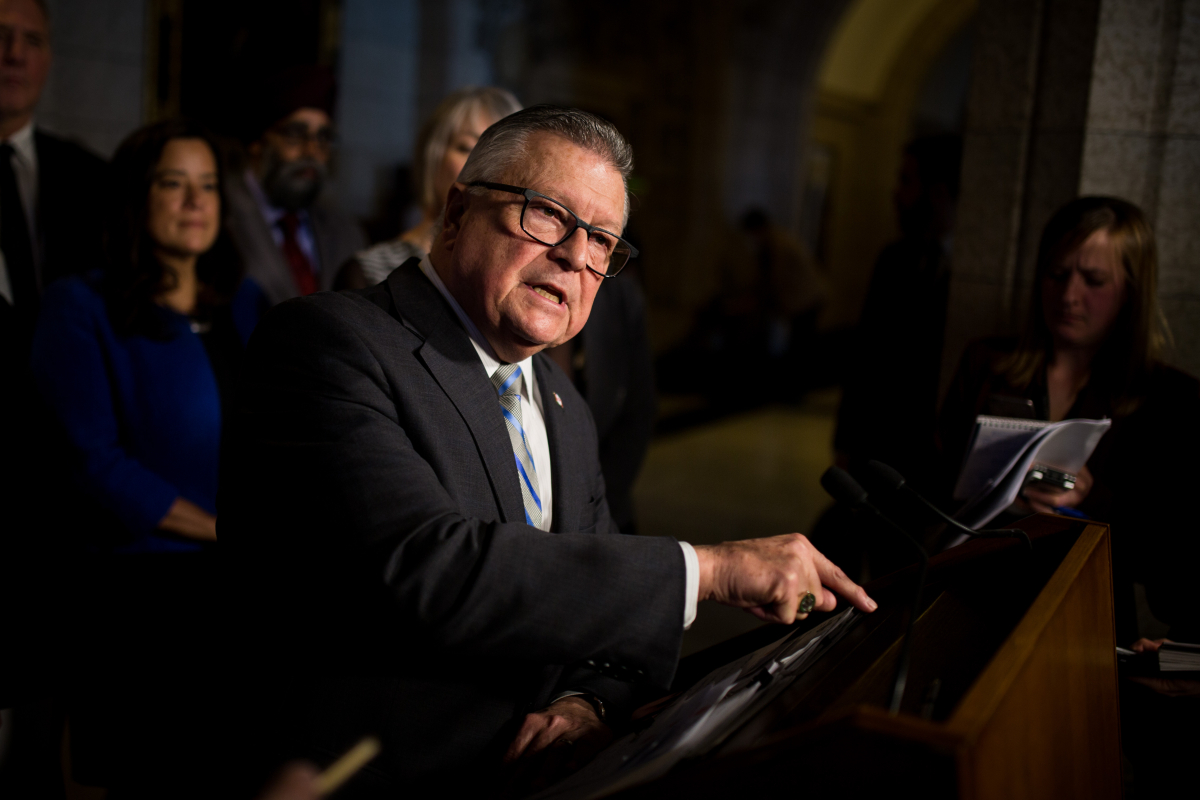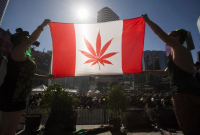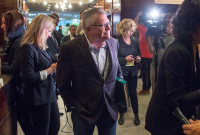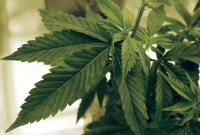Support strong Canadian climate journalism for 2025
Public Safety Minister Ralph Goodale says there's no reason why legalizing marijuana in Canada should create headaches for Canadians when they try to cross the border into the United States.
Goodale notes that it will remain illegal for Canadians to take cannabis across the border into the U.S., just as it will remain illegal for Americans to bring cannabis into Canada.
And since that doesn't change, he says there's no need for American border officials to tighten screening for Canadians coming into their country.
That said, Goodale concedes recreational use of cannabis remains a criminal offence under American federal law — although more than two dozen states have legalized or decriminalized it — and it's the federal U.S. government that controls the rules governing border crossings.
And he acknowledges that the American government has the sovereign right to decide who is allowed to enter the country.
Still, he expresses confidence that continuous dialogue with Homeland Security and U.S. border officials will minimize any potential problems.
"Our message (to Americans) is this should not be an issue," Goodale said Monday during testimony to a Senate committee that is examining aspects of Bill C-45, the government legislation that is to usher in the new era of legalized cannabis this summer.
"It becomes an issue if you make it one, but there's no need to make it one because the border rules have not changed."
Conservative senators, who are opposed to the bill, raised concerns that Canadians crossing the border could be subjected to more aggressive questioning and face increased searches of their vehicles and even body searches by American border officers — all of which could compound line-ups and delays at border crossings. They suggested the government needs to get a written agreement with the U.S. to guarantee that won't happen.
However, Goodale maintained it's more practical to keep talking to American officials and convincing them there's no need to crack down on border screening, although he conceded "we may have to be increasingly blunt in the way it's expressed."
Conservative Sen. Jean-Guy Dagenais argued that a Canadian whose clothes or car smells of pot will be hauled over for secondary questioning by American border officials. But Goodale countered that such problems already exist today.
"The question is will it become a more significant problem once the law changes?" Goodale said.
Canadians, he said, need to be "very alert" to the fact that cannabis will remain illegal under U.S. federal law so "if you are driving up to the U.S. border and smoking marijuana in your vehicle, you are really asking for a secondary investigation and that is very foolish behaviour."





Comments